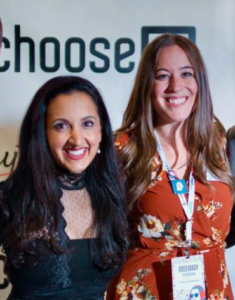 Welcome back to PSA Thursday, a weekly-ish segment in which we talk about how to handle money, work, and life in the year that is 2020.
Welcome back to PSA Thursday, a weekly-ish segment in which we talk about how to handle money, work, and life in the year that is 2020.
Today, we’re tackling one of the biggest line-items on your budget: food.
According to the Bureau of Labor Statistics, in 2019, Americans spent just over $8,000 on food.
If you’re on a tight budget, slashing your grocery bill is one of the easiest ways to spend less. But what if you don’t want to compromise on healthy eating?
Today’s guest, Rosemary Fotheringham, is a Functional Nutritional Therapy Practitioner (FNTP) who’s also on the path to financial independence. She and her husband slashed their monthly grocery bill from $1,200 down to $300 – without eating pasta every night.
In this episode, Rosemary explains their framework for healthy eating and shares her best tips for eating well on a tight budget.
Here’s a preview of the topics discussed:
- How to incorporate food preparation into your life, taking into account your limited resources
- Why you should focus on high-quality fats and proteins, and examples of what qualifies for each
- Healthier alternatives to common carbs like pasta, potatoes, rice, and wraps
- A meal template that anyone can use to quickly throw food together
- The science behind satiation, and the differences between fats and carbs
- What to do if your family isn’t on board with healthier eating
- How to set boundaries with others in the house: “I’m happy to…”
- Why Whole30 and the Autoimmune Protocol (AIP) diets are a good place to start, especially if there are food allergies involved
- How buying in bulk can save you a ton of money
- What equipment and ingredients to focus on if you have limited space
Resources Mentioned:
- Flourish Fundamentals – Rosemary’s Site
- Cook Once, Eat All Week, by Cassy Joy Garcia
- EatWild.com
- Whole30 Cookbooks on Amazon
- AIP Cookbooks on Amazon
- Sacred Cow, by Diana Rodgers